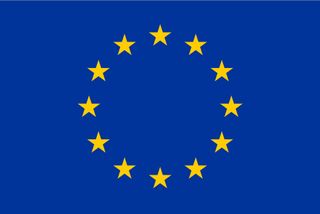Net Neutrality Regulation Passes EU Parliament With Loopholes Intact

The European Union (EU) Parliament passed the net neutrality regulation today without any of the amendments that would fix the four main loopholes criticized by NGOs, tech companies and the Web creator's Tim Berners-Lee recently.
Despite calling it a "net neutrality" regulation, it seems the main benefit that the EU Commission is touting from this is the abolishing of roaming costs in 2017, which has nothing to do with Internet neutrality.
Although the net neutrality regulation proposed by the EU Commission does say that all traffic from the "Open Internet" should be treated as equal, and there shouldn't be any discrimination against certain classes of traffic, the NGOs and tech companies are worried that the recently introduced specialized services, zero-rating and congestion control exceptions will lead to abuse from the Internet providers.
The European Commission, led by President Jean-Claude Juncker and Vice-President Andrus Ansip, who oversaw the new net neutrality proposal, compromised on net neutrality exceptions such as the "specialized services" provision, in order to get ISPs and mobile operators to agree with the abolishing of roaming fees.
However, as we've discussed previously, the roaming fees problem would have been solved by itself within a few more years, as more and more people start using apps such as Skype, Hangouts and Whatsapp. The new net neutrality may actually slow down their progress because it also classifies VOIP as one of these "specialized services" that the ISPs will be allowed to offer at better speeds than the "regular" Internet.
The amendments that banned zero-rating, against which Tim Berners-Lee has spoken in the past, and the ones that tried to ensure the ISPs don't abuse their network congestion management tools to throttle certain classes of traffic, such as encrypted or P2P traffic, were also rejected.
It will now be up to the Body of European Regulators of Electronic Communications (BEREC) to ensure that the Internet providers don't abuse their powers. EDRi and other NGOs will try to get BEREC to limit what the ISPs can do with the existing loopholes in the net neutrality regulation.
Stay on the Cutting Edge
Join the experts who read Tom's Hardware for the inside track on enthusiast PC tech news — and have for over 25 years. We'll send breaking news and in-depth reviews of CPUs, GPUs, AI, maker hardware and more straight to your inbox.
"The European Parliament has avoided making decisions on all crucial points," said Joe McNamee, Executive Director of European Digital Rights. "Now, national regulators will have to decide – on abuses imposed through 'zero rating,' on rules on congestion management, on specialised services and so on," he added. "We will engage with BEREC and the Commission to provide clarity in the interpretation of the rules. Hopefully, the vagueness of the regulation can be fixed by BEREC's guidelines and through diligent enforcement by national telecoms regulators," Mr. McNamee concluded.
BEREC will now have nine months to issue guidelines to national communications agencies that will regulate the local Internet providers. Starting in September next year, the enforcement of the new net neutrality regulation will begin.
______________________________________________________________________

Lucian Armasu joined Tom’s Hardware in early 2014. He writes news stories on mobile, chipsets, security, privacy, and anything else that might be of interest to him from the technology world. Outside of Tom’s Hardware, he dreams of becoming an entrepreneur.
You can follow him at @lucian_armasu. Follow us @tomshardware, on Facebook and on Google+.
-
lun471k The main issue with that is that now the US Congress has a reason to pass it in the US.Reply
And the rest of the world will follow. That's saddening. -
hoofhearted It happened to the gaming industry, just a matter of time before the pay-to-win model trickles to everything else. Maybe these ISPs can adapt an ebay auction model to you bandwith. Internet to slow - turn up the cents-per-minute dial on the cable modem and watch your bandwidth go up at the expense of your neighbors.Reply -
videobear @jasonelmore: "thank god the us congress has 0 authority over internet regulations. FCC baby"Reply
Not quite. Congress can pass legislation that the FCC must comply with and implement. This new EU law sets a bad precedent.
Most Popular


